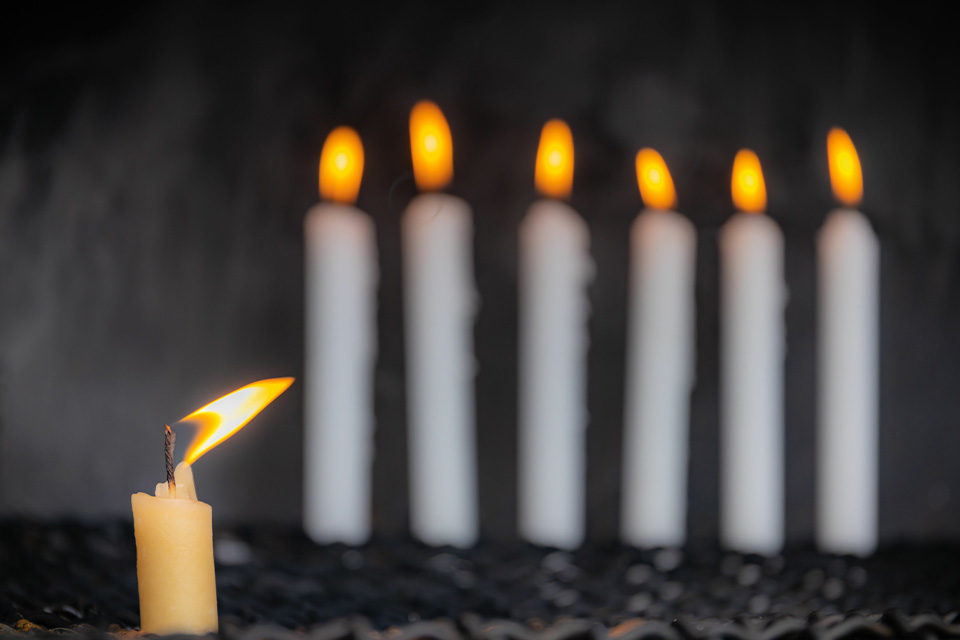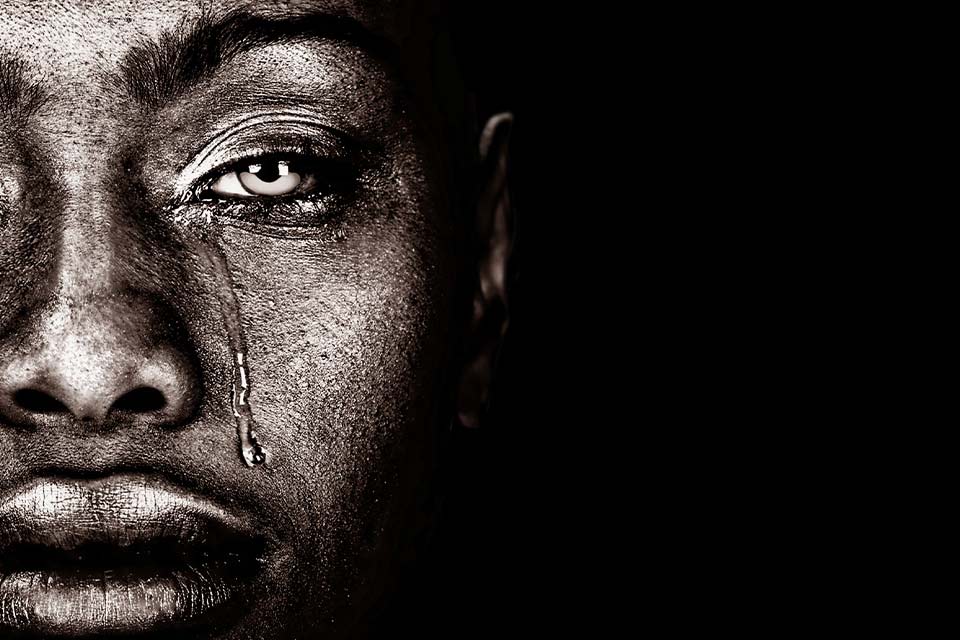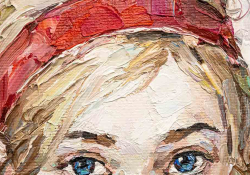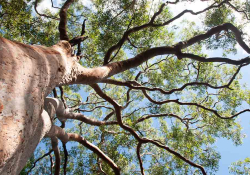A New Dawn

It’s 2050, and five African nations have surrendered their sovereignty to form a new nation. To some, it was unfathomable that the rulers of countries which operated on different agendas and cultural norms could set their differences aside and merge seamlessly into one nation. Alande Mukumbi, the new president of Embo, is determined to prove the naysayers wrong.
The Kraal was filled to capacity that morning. People young and old shuffled about hurriedly to get to their seats, occasionally stopping to grab refreshments from the service droids holding trays with offerings of finger foods and drinks.
Everyone showed up bedecked in their finest regalia. The nature conservationists in their signature beige hemp pants and vegan leather sandals, the animists in their hand-me-down shark, lion, and tiger-tooth necklaces denoting their totems, and the modernists in their space-age-reminiscent silver silk and charcoal cotton mod outfits, accessorized with metallic jewelry. Hair styles ranged from fiery red dreadlocks to bald, tattooed heads. Diverse though they were in their appearance and beliefs, they all agreed on one thing: this was an exciting time in the kingdom.
The Western media outlets had declared it economic suicide. The Unified Pan Africanist States concept was initially dismissed as an idealist pipe dream. The Congo, Nigeria, Sudan, South Africa, and Ghana had begged to differ. Instead, all five nations had devolved their sovereignty and formed a new hybrid nation called Embo. Unfettered by the geographical disparity between some of these countries, the decision saw the dissolution of borders across all these countries. Instead, citizens were issued new passports with the Embo flag colors: green to represent abundant harvests and natural vegetation, blue to symbolize water, yellow as a sign of the sun and to commemorate their heliophilic religion, red for the lives lost in the wars of years gone by, and brown for the land.
The hybrid country’s economy took a knock. Foreign investors withdrew, fearing the volatility of the new coalition and interpreting it as a threat to their interests in the region. It was simply unfathomable that the rulers of countries which operated on different agendas and cultural norms could set their differences aside and merge seamlessly into one nation.
It wasn’t only foreign stakeholders that resisted this change. The ruling class of each country were not about to hand over the reins and recline into ordinary civilian lives. Not without a fight.
The ruling class of each country were not about to hand over the reins and recline into ordinary civilian lives.
The bloodshed was gruesome. Corrupt politicians did everything imaginable to prevent the successful merger of their respective countries. They plotted instead against those in favor of it, eliminating as many as they could. Many of them were sent to jail when she came into power.
The news referred to the killings as “The Pan African Disaster,” implying that the continent wasn’t ready to administer such advanced systems of governance as had been achieved elsewhere in Europe.
Alande Mukumbi was determined to prove them wrong. Having braved insurmountable odds to make it to the polls when the merger finally went through and the new country needed a ruler, she’d faced a fierce battle from the day she was announced as a contender.
The first attempt on her life came in the form of a bombing. She’d been a few footsteps from her ship when it exploded, blowing the machinery and the pilot to ashes right in front of her.
* * *
“Breathe, Alande. You’ve got this.” she said, looking right into the bulging eyes that stared at her from the mirror. The ship was on rest mode, and her room had been converted into a leisure lounge at the press of a button. Sam Cooke’s “A Change Is Gonna Come” bellowed from the speakers. Ever since she’d heard it when she visited the National Musical Archives Centre as part of her induction into office, the song had haunted her until she sent an audio sample and asked that the song be sent to her by the end of that business day. It must’ve been a peculiar request. She could just imagine her critics. “When will she run the country if she has time to obsess about music?”
Alande closed her eyes, drew a deep breath through her nostrils, and exhaled loudly through the mouth.
The alarm beeped. Someone was at her door. It was time for the walk-in.
“Five minutes, please!” she shouted.
The east wing of the ship was reserved for her altar. Nobody but her children were permitted near it. A cushion to support her knees, she bent down and lit the incense. Offerings of honey and milk sat in gourds beside the silver coins from all the conglomerate countries’ previous currencies and a 10,000 EmboPesa note. These were surrounded by seven white candles, which she lit as she mumbled a prayerful chant beneath her breath. These implements, she hoped, would coax the favor of the gods, who, in turn, would protect her and prosper the new country.
Her routine concluded, she doused the candles with the tips of her fingers as she’d been taught by her mother.
* * *
Flashback. The unruly flames. Her transfixed gaze. Smoke choking her lungs. Her mother’s screams. Villagers rushing to the scene with buckets of water. The orange and red flames growing, engulfing the house. The ambulance. Her seven-year-old body, numbed by shock. The tears on her father’s face. Her own asphyxiated lungs. The violent coughing. The sweet, putrid smell of char-grilled flesh. The coal statue with its knees drawn to its chest in the fetal position, arms clasped around its own body as though self-soothing, head jerked to one side atop its own knees and mouth twisted in a terrible display of agony. Her father’s subsequent suicide . . .
* * *
The beeping sound came with a knock on the door this time. Only Suzanna was that audacious.
“I said I’m coming,” the president muttered, the annoyance in her voice surprising her.
“The president will now address us. Please be advised that you’re prohibited from taking pictures, videos, or any other reproductions of the proceedings unless you’re a licensed member of the media,” announced the AI.
The clouds started to gather, releasing a scorching acid rain that left a sulphuric smell in the air.
Just when she was about to speak, the first roars of thunder started. Despite the sweltering November heat, the clouds started to gather, releasing a scorching acid rain that left a sulphuric smell in the air. The rich could be seen in their visors to protect their eyes, oxygen tanks attached to their backs in designer backpacks, masks covering their nostrils and ensuring their private air supply reached their lungs without being contaminated. Those who had neglected to apply filtering lotions developed blisters on the surface of their skin. The droids were quick to administer relief in the form of 200-milliliter tubs of jojoba, snail slime, tea tree, and stem-cell lotions. The results were almost magical: where skin was inflamed and blistered, the itching soon found relief, leaving vague scar tissue that would heal over the next few hours.
* * *
A kudu horn sounded the alert, accompanied by thunderous drumming. That’s when she appeared, flanked by two dozen heavily armed bodyguards.
President Alande stood on the gray marble podium, elevated from the seated congregants in such a way that she appeared like some divine apparition watching over them. And divine she was, in her flattering kaftan woven from the finest gold threads Embo produced. Juxtaposed against the blue-black of her complexion and the auburn of her upstyled dreadlocks, the royal dress absorbed the sun’s light and radiated a brilliant sheen that bounced off the glass screens of the reflectors, splitting her image a few dozen times to create the optical illusion of an army of identical beings forming a semicircle around her.
At forty-two, she wasn’t the obvious choice for the presidency. In fact, many contested the idea of a female president. It was her Equal Distribution of Precious Resources Policy that had secured her victory. Whereas her contemporaries were happy to continue with the extraction methods of old, which left the land fractured, polluted the air with their toxic emissions, pilfered and shared the mineral resources between foreign private companies and the government, she proposed that each household be given an equal percentage share of the gold, fuel, and coltan resources.
“The shares are to be invested in a portfolio that each family is only allowed to cash out every seven-year cycle,” she had explained on live television.
Thought dubious at first, this new policy proved a boon to each household’s financial prospects when people learned that they could monitor their earnings in the stock market and keep track of every cent attributable to their families.
This way they could use these portfolios as collateral on home improvement and education loans for their children. The latter were encouraged to study mathematics, agriculture, robotics, geology, botany, IT, and other fields that would ensure their absorption into the national service and later, governance.
Even those who for decades were ferried into the coltan mines as cheap labor now had a chance of profiting from its gains.
Even those who for decades were ferried into the coltan mines as cheap labor now had a chance of profiting from its gains. Reclaimed and operated by the state, this was one of the first industries to undergo these radical reform procedures. The introduction of a basic livable wage was in its first phase of implementation. Under Alande’s administration, poverty eradication seemed an attainable goal, despite what cynics said.
The previous regime had clutched on to power by enforcing a classist rule that guaranteed a good education to the children of the elite, while relegating the poor to lives of menial labor and perpetual servitude, ensuring an endless cycle of hierarchical rule.
* * *
Everyone rose to their feet when she cleared her throat. Some had traveled for long hours on their solar-powered hover vehicles to see her in the flesh.
As though on cue, they raised their arms skyward, interlinking their index fingers and thumbs to each form the customary infinity-sign salutation.
A boy with a dreadlocked mohawk led the choir in the anthem:
Land of wisdom, truth and wealth
Most anointed of the earth
Envy of every other nation
Highly favored without question
Sovereign star of the dark skies
Whose glory daily multiplies
Let every voice boldly echo
We, united, are called Embo!
“Citizens. I greet you all in the name of our great kingdom,” she said, her voice resonating throughout the vast amphitheater.
A unanimous shout of “Embo!” resounded amidst a generally reverent mood.
There was a commotion in the back row. President Alande blinked nervously, unsure whether to proceed with her speech. She’d just been getting ready to address food shortage when the disruption emerged.
She looked to her bodyguard Suzanna for clarity, who brought out a small comms device the size of a matchbox, pressing a button on its side so that the AI shot up like a mirage in front of them.
“What’s the matter, Asante?” asked Suzanna, her brow frowning.
“Greetings, security officer. An insurgent has been caught and charged with theft—” it started, cut off midsentence by an alarmed president.
“What did they steal? Where is the person now?” asked Alande all at once.
“A boy, Madame. He disabled one of the droids by injecting hydrofluoric acid and squid ink into its endoskeleton and then made off with the tray of food it was carrying.”
“What?”
“I’m sorry, Madame. Our security detail should have been vigilant,” said Suzanna, head bowed.
“Nonsense. Where is he now?”
“He’s been detained in the storage facility, Madame,” replied the AI.
Security breach or not, the president was intrigued by the ingenuity of the culprit. He’d had to have had a decent knowledge of robotics to know that HF acid and squid ink had a corrosive effect on the embossed titanium internal casing of a droid.
“Asante, send a message to the guards that I want the boy brought to me immediately.”
Two armed guards dragged the ashen-faced youth to the front of the auditorium. Some jeered and shouted insults at him, others demanding that he be taught a lesson.
“What’s your name, young man?”
“Speak!” Suzanna said, raising her hand before his gaunt face, ready to strike him. The boy shuddered, his eyes teary.
“Stop!” shouted Alande. “Leave him be.”
“But he stole—”
Alande held up her hand and shook her head.
“I’ll decide whether he’s guilty or not and what happens to him,” she said.
“Your name, young thief!” said Suzanna, sneering at the now shivering boy.
“Samuel, Ma” he said, biting his grimy nails.
“Is it true you were caught stealing?” asked Alande.
Tears dripped from the boy’s eyes, mixing with the dirt on his face so that they were black by the time they reached the ground. Snot issued from his nose simultaneously, turning his face into a shameful mess. His chest and shoulders heaved violently as he gave vent to his woes in the most pitiful display of sorrow Alande had ever witnessed in one so young.
“Where are your parents?”
“My mother died during the last flood, Ma.” he said, stuttering.
An all-too-common story in the land. The flood. She too remembered its devastating impact on the lives of her relatives. It started with twenty-one days of heavy rainfall. Unusual, considering it was the middle of summer.
“Citizens are advised to remain indoors,” the weatherman had said. Easier said, except the violent storm surge that followed destroyed the homes of millions of people.
Alande was distraught when she thought of her daughter Amari. The child had been a delight since she was born, always bringing smiles to the faces of those around her. At fourteen, she reveled in going to market with her grandmother to assist in the sale of fresh produce. Not that the enterprise fetched much in winter. Amari and Mama Mukumbi had made off by foot in the morning, never to return alive.

A tear trickled down her face as she stood before the boy.
A tear trickled down her face as she stood before the boy. Everyone assumed it was induced by the chemtrails in the air. But when she and the boy locked eyes, there was an instant recognition between two people who both were on a first-name basis with melancholy.
“I’m very sorry, Ma,” the boy mumbled, tears nearly dried on his face.
Moved by his remorse, she reached out her dainty hand instinctively. The boy flinched. Realizing he thought she was about to hit him, she retracted her hand.
“Don’t be afraid. I won’t hurt you,” she said.
Samuel looked up slowly, evidently not convinced. He’d been caught red-handed, after all.
“I’m sorry, Ma,” he stuttered.
Suzanna had already run the procedural biometric scan and pulled out the boy’s file on her comms device. The findings were consistent with his responses to the earlier inquisition. An orphan. The eldest in a child-headed household.
The crowd roared, most insisting that his act was an affront on Embo’s rule of law and would set a bad precedent if left unpunished.
“There will be no flogging,” she started. Some amongst the crowd booed the motion.
“Quiet. We should be ashamed of ourselves that a child should be driven to theft by hunger.”
There was a persistent hum of dissent.
“That’s right. With all our Ubuntu talk, nobody thought to feed his family or at least bring his situation to the administration’s awareness?” she hissed.
There were tears in her own eyes. Nobody knew of her life in the orphanage in Burundi before Mama Makumbi adopted her. Not the horrors and abuses at the hands of cruel overseers. The demonic growls of her hungry stomach at midnight. Nor how she clawed her way out of the trenches to emerge as president of Embo in 2050.
The crowd mumbled, some expressing their disappointment in the “obviously weak” new ruler—“What did you expect from a woman? The presidency is no place for her!”—while others simply evaded the burden of responsibility she insisted on levying on them.
“But the law says—” argued one man.
“It’s time we reconsidered these old laws. What good will it do him if I order his flogging?”
“He’ll know never to steal again, Madame,” shrugged the man defiantly.
“But will he not still hunger?” she asked.
“Yes, but—”
“But nothing. Touch a hair on his head and you’ll have me to answer to,” she said, addressing the crowd.
“Tonight Samuel and his family will move into the presidential quarters. They’ll attend lessons alongside my children and will never have any reason to steal again.”
The boy shrieked in disbelief and threw himself into President Alande’s arms, weeping. Suzanna jumped instinctively to her aid and stood down when she was given a dismissal signal by the first-states person. Alande wrapped her arms around the youth and held him to her chest. Diplomats pinched their noses and masked their discomfort with nervous smiles. Alande Mukumbi’s naïveté was embarrassing. Ordinary people marveled that the most important person amongst them should hold a filthy urchin so close to her ceremonial garments as to stain them with the virulent stench of his abjection.
Slowly, people began clapping their hands. Even the old man softened up and shouted her praises. “Mama Alande will lead us to a new dawn!”
Cape Town, South Africa










